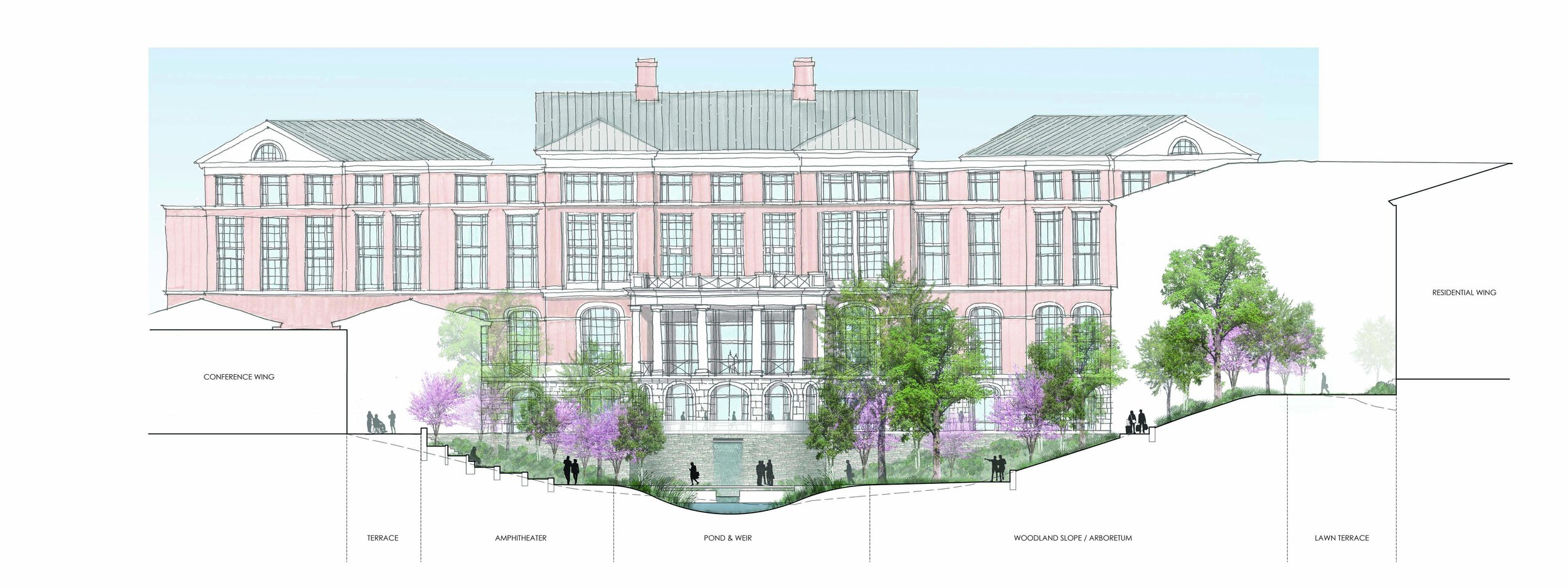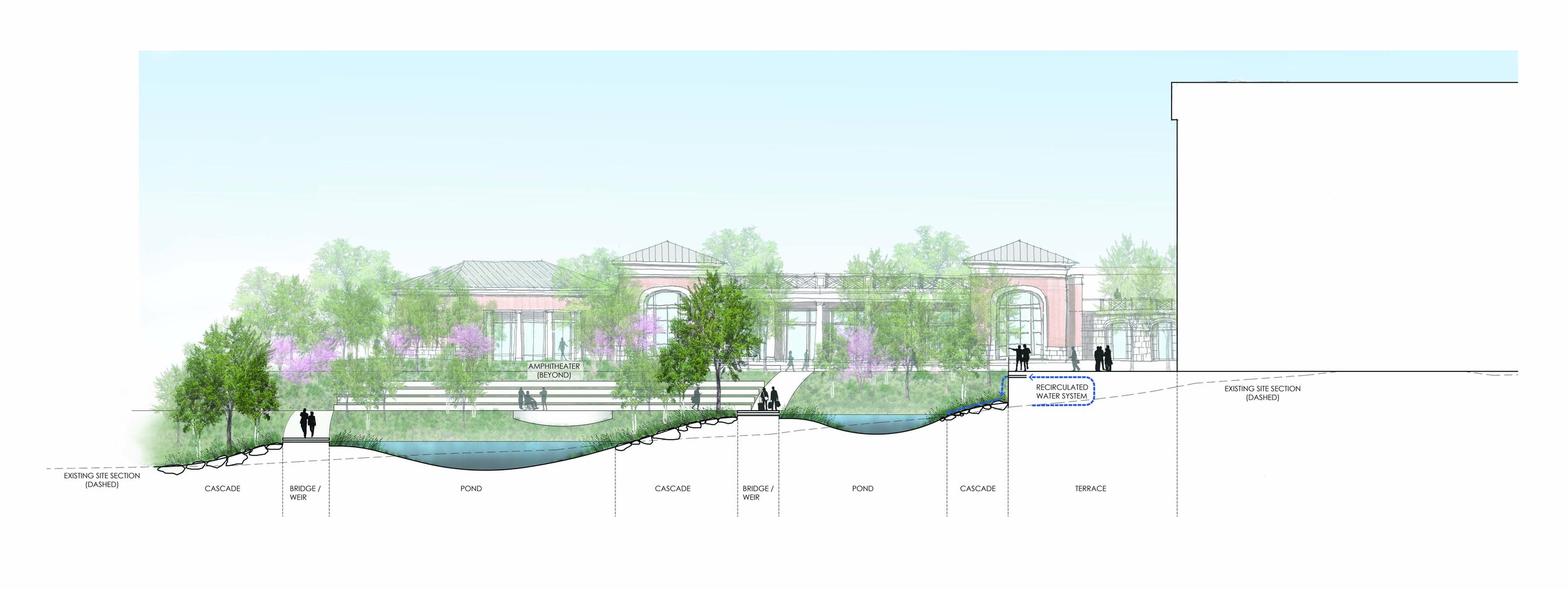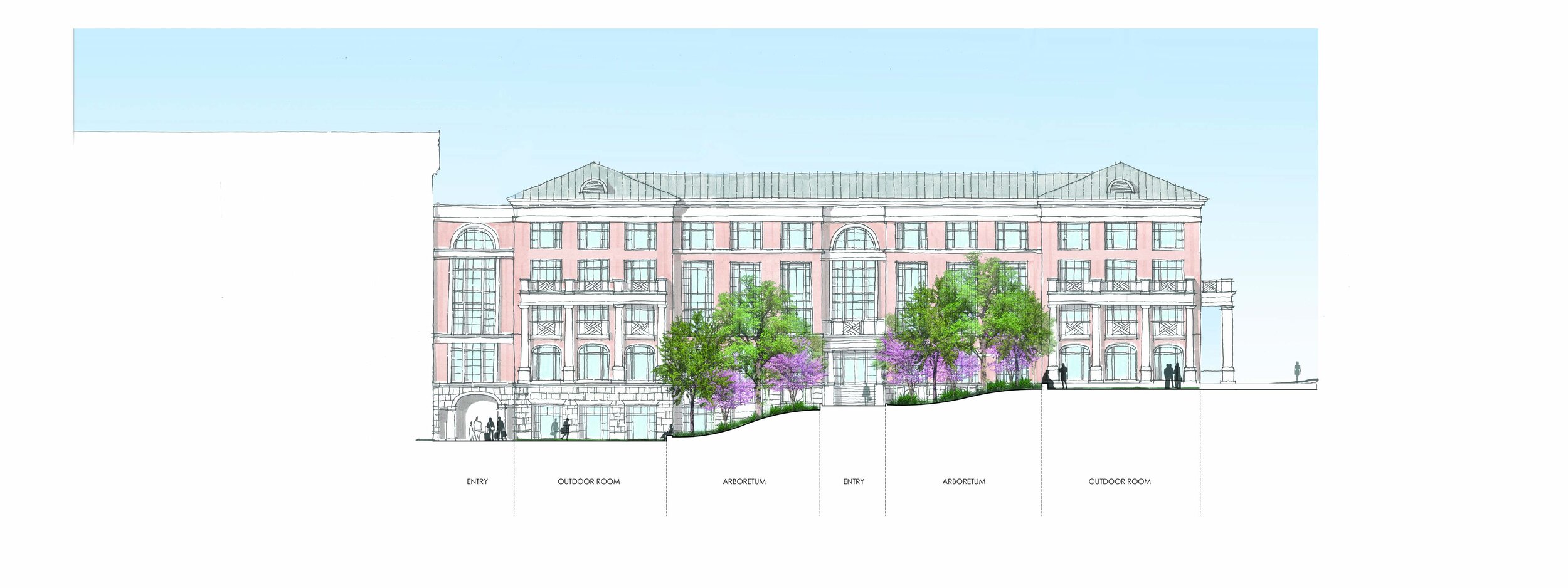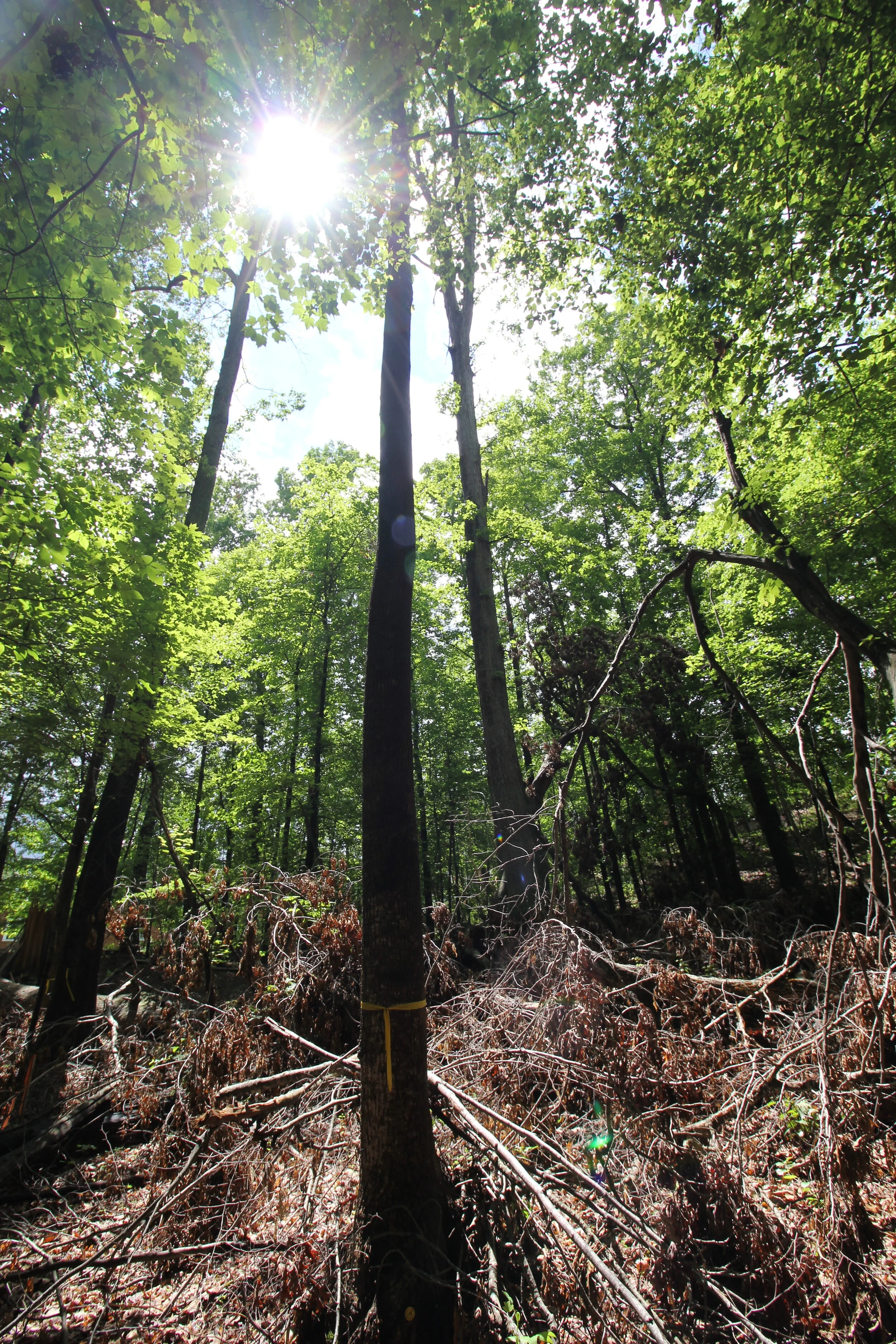UVA Darden Inn - Arboretum & Botanical Gardens
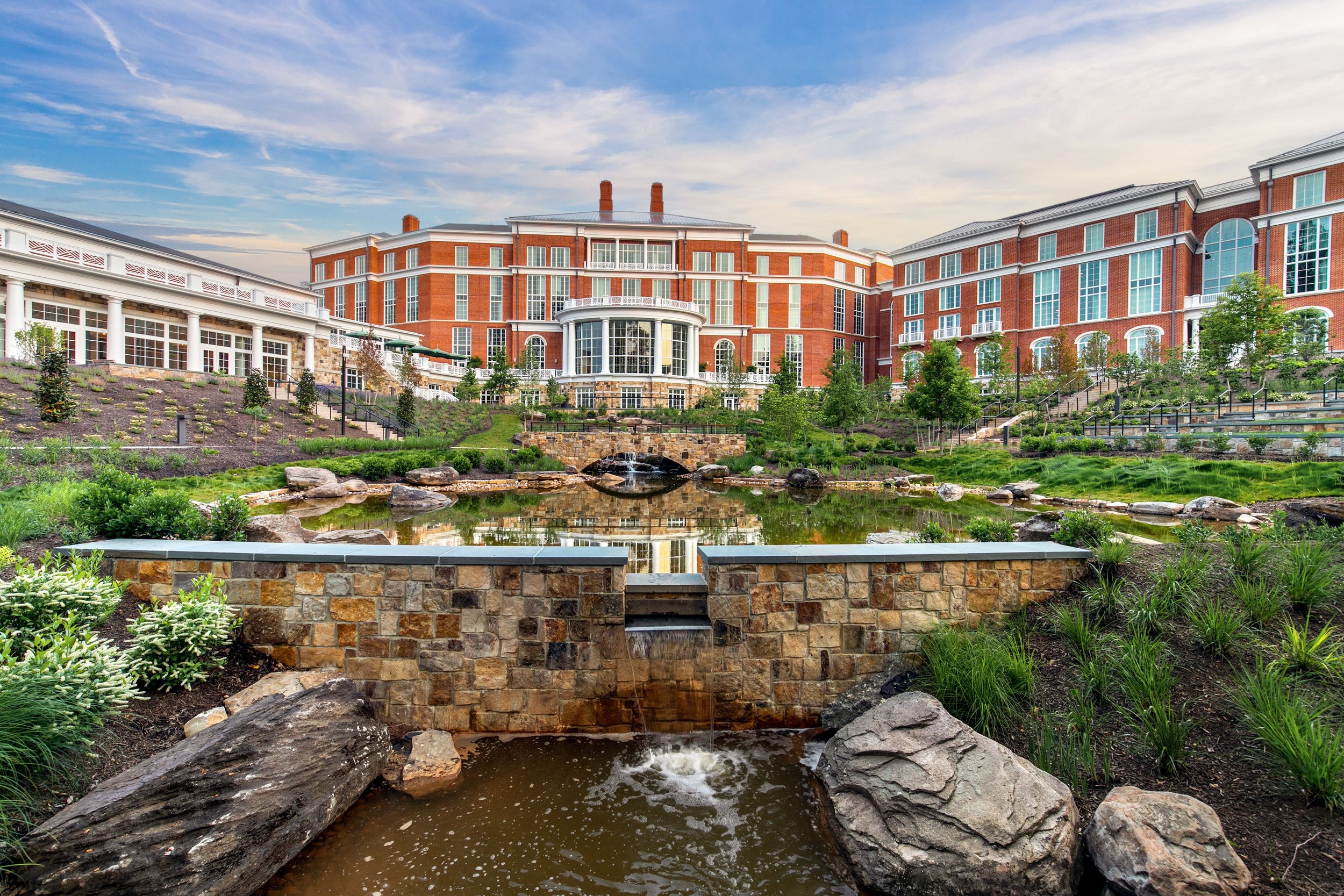
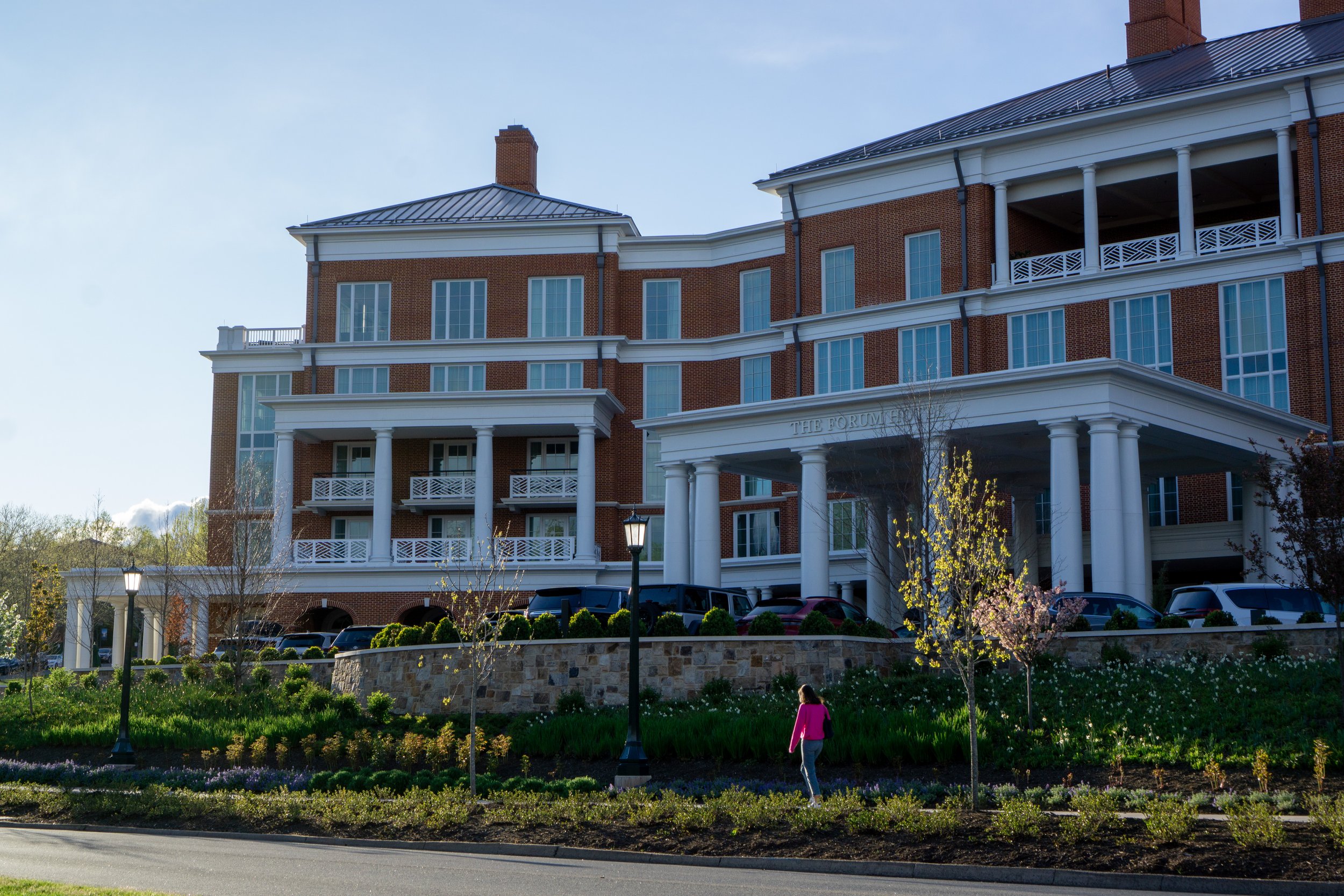
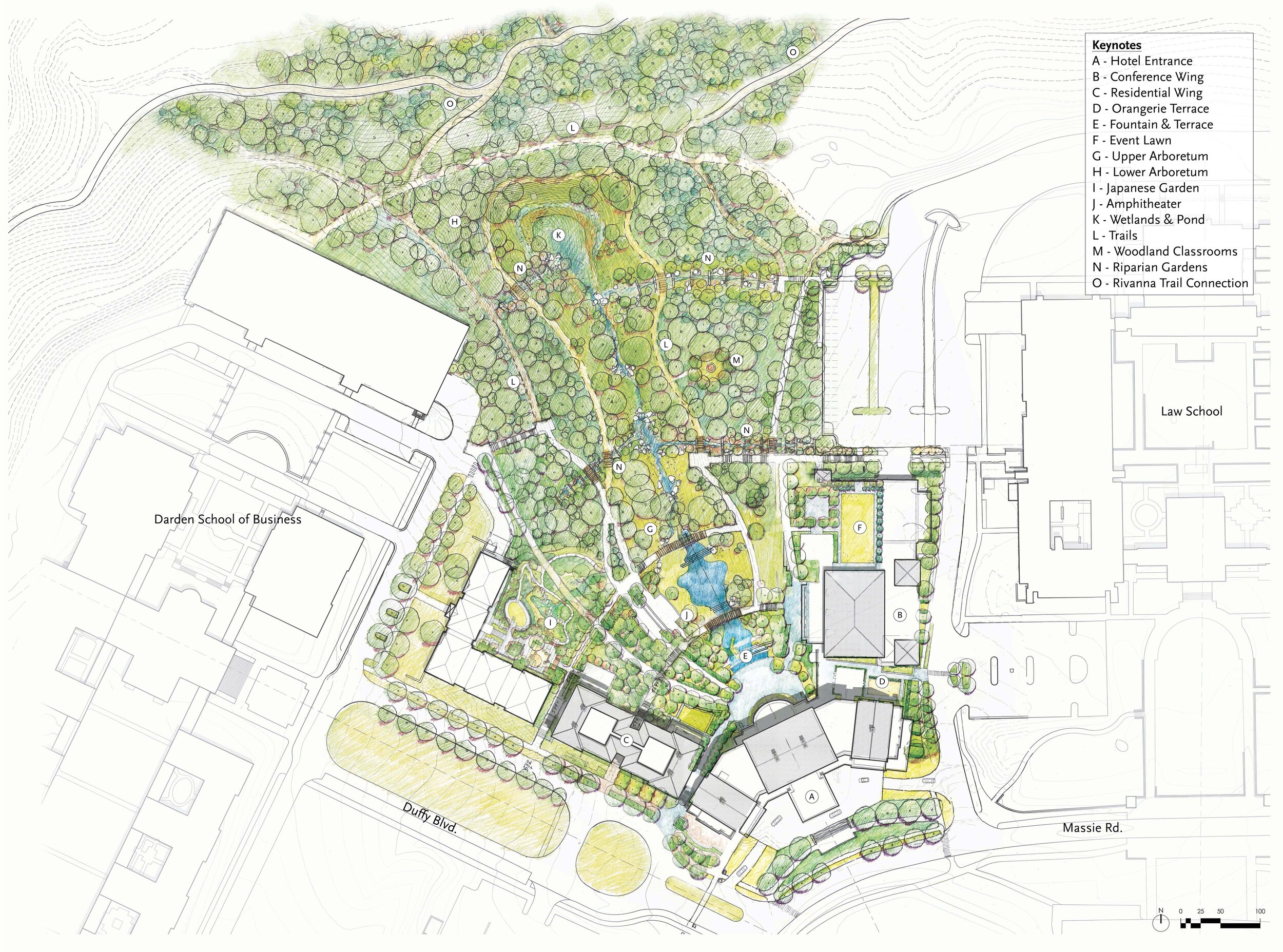
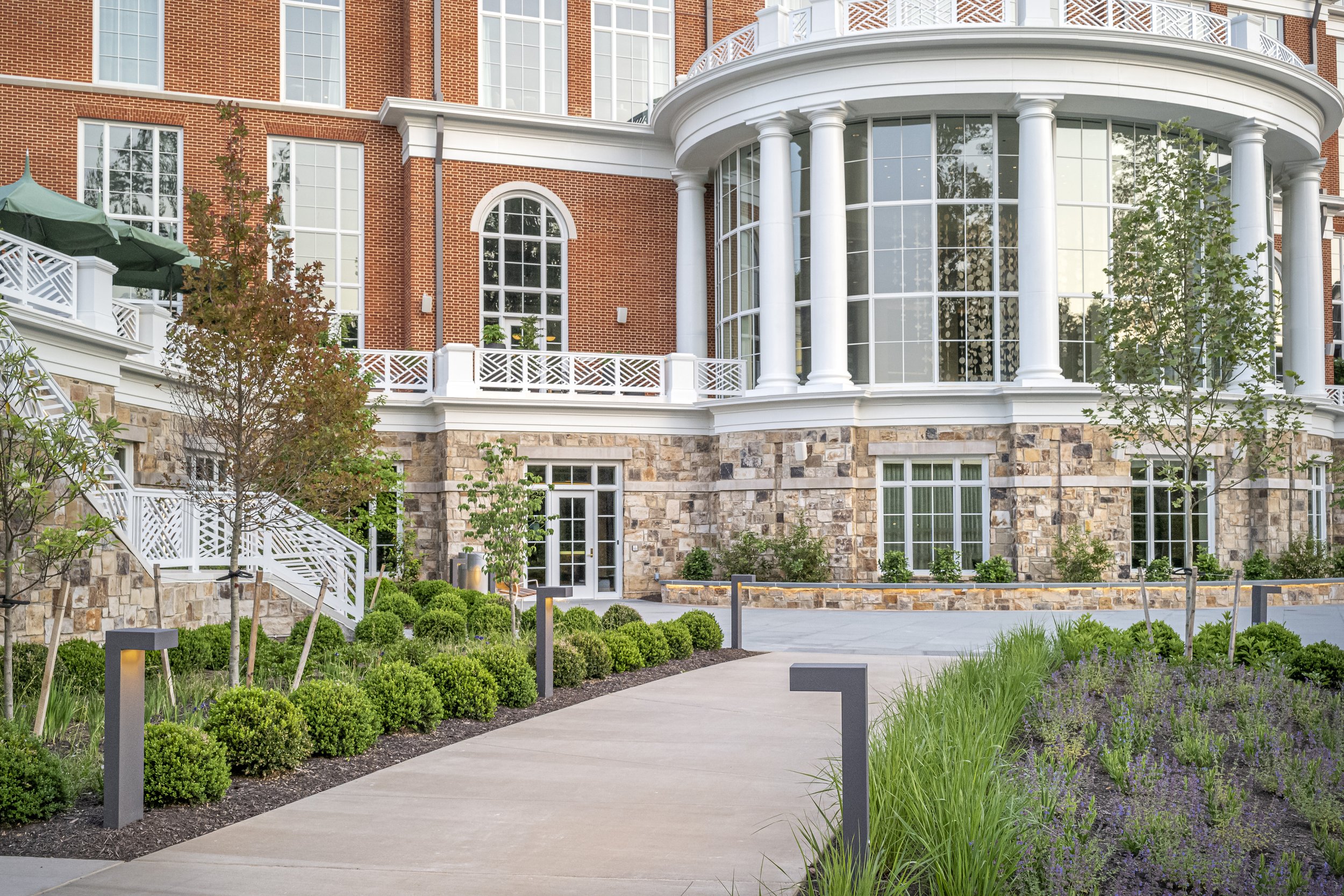
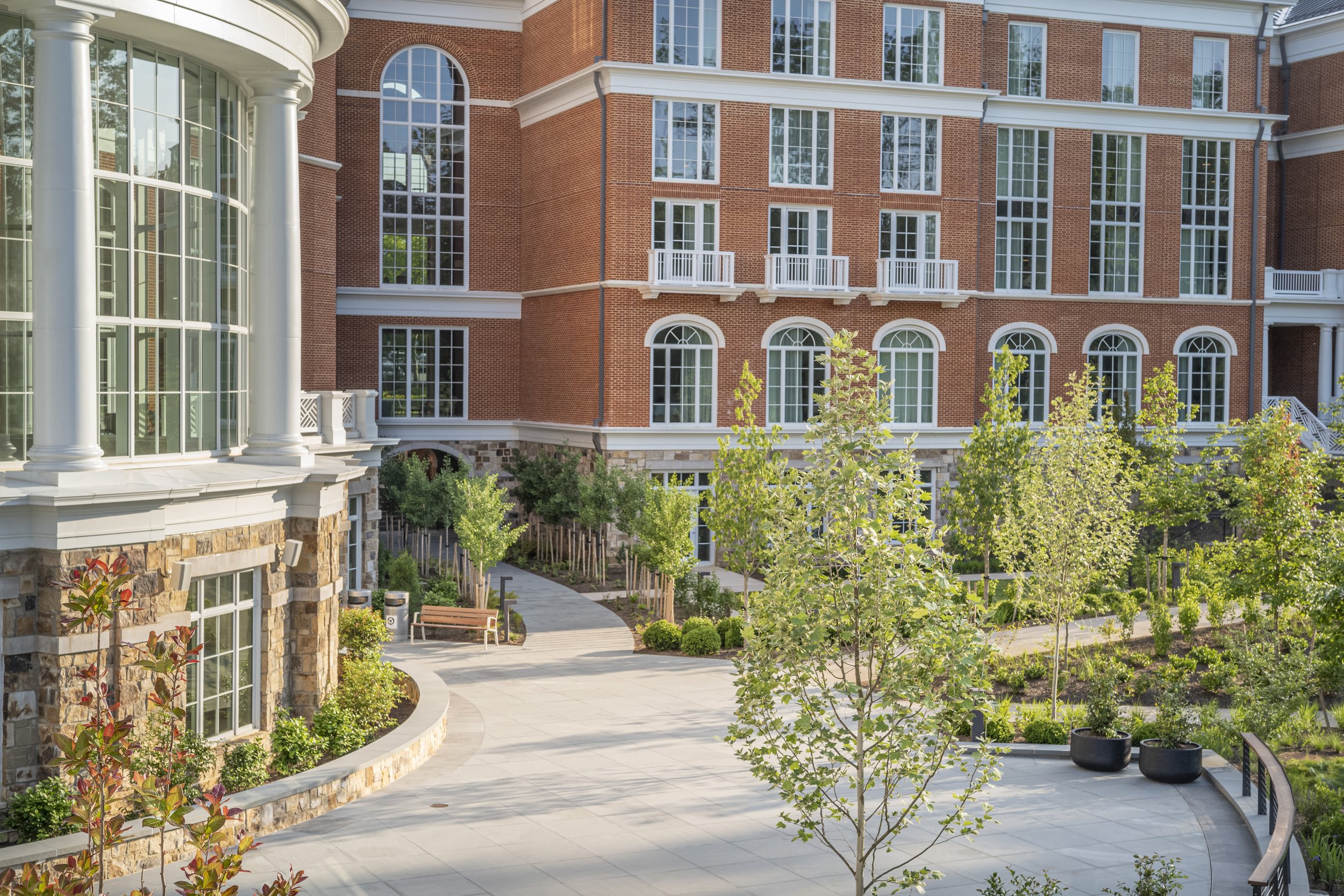
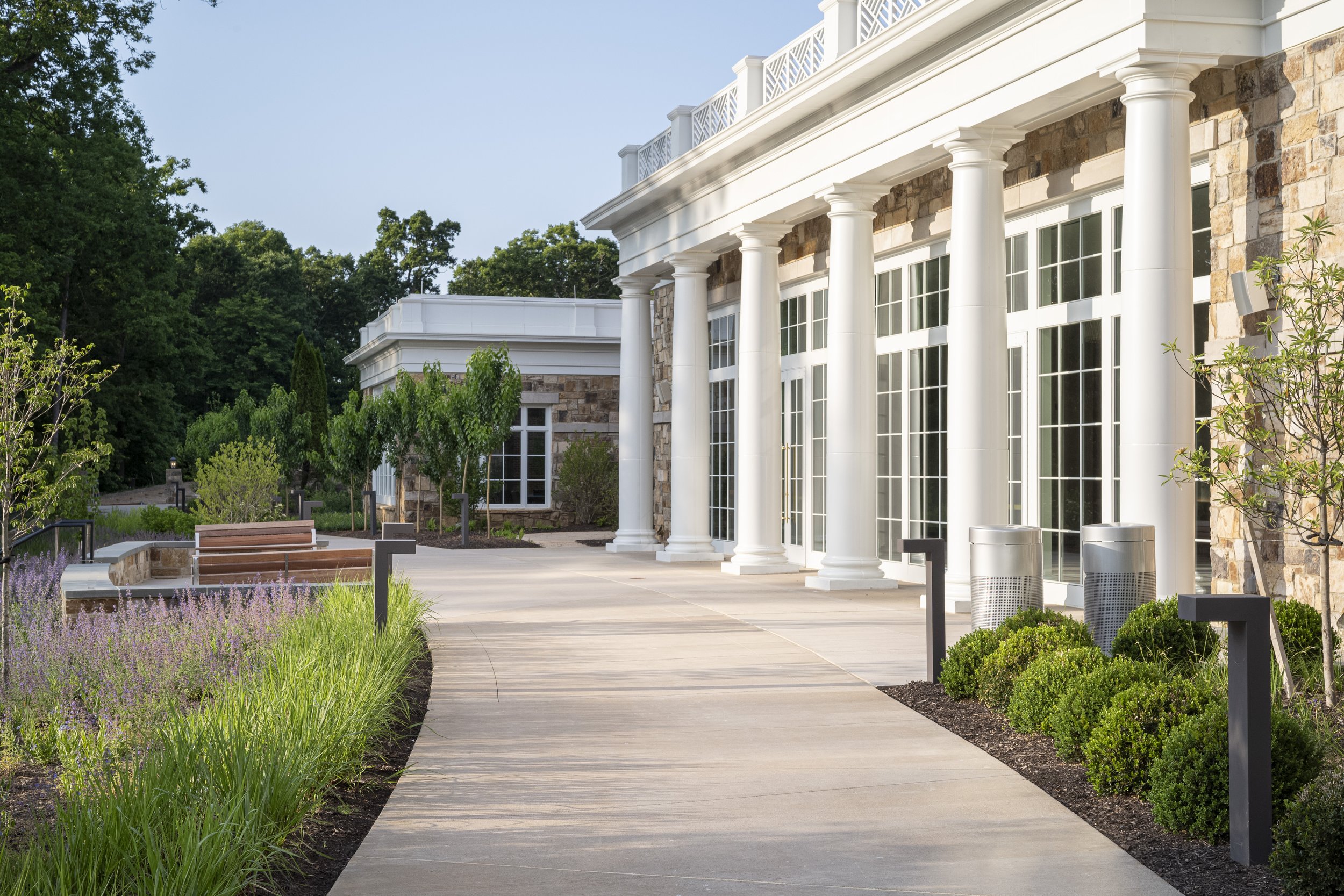
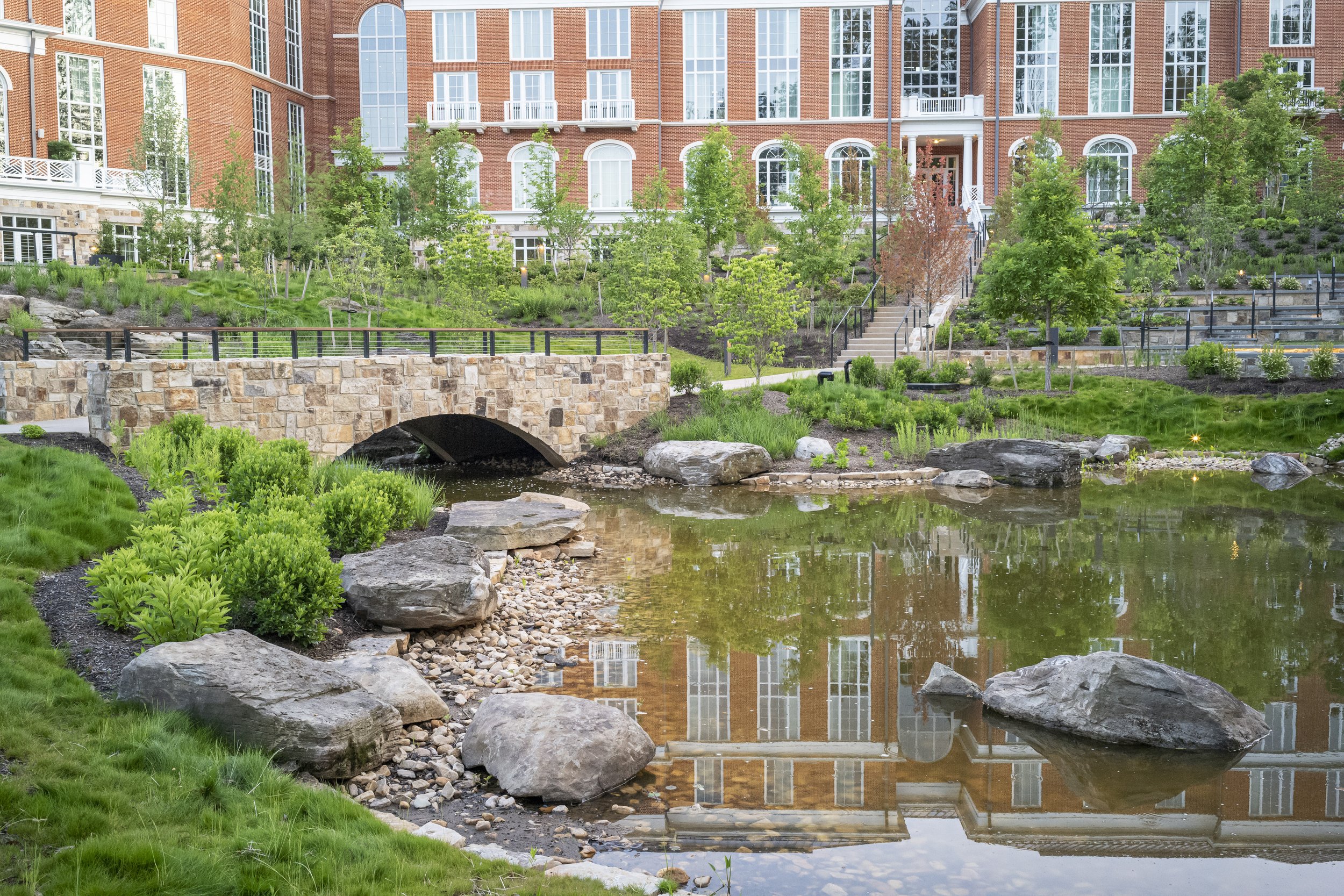
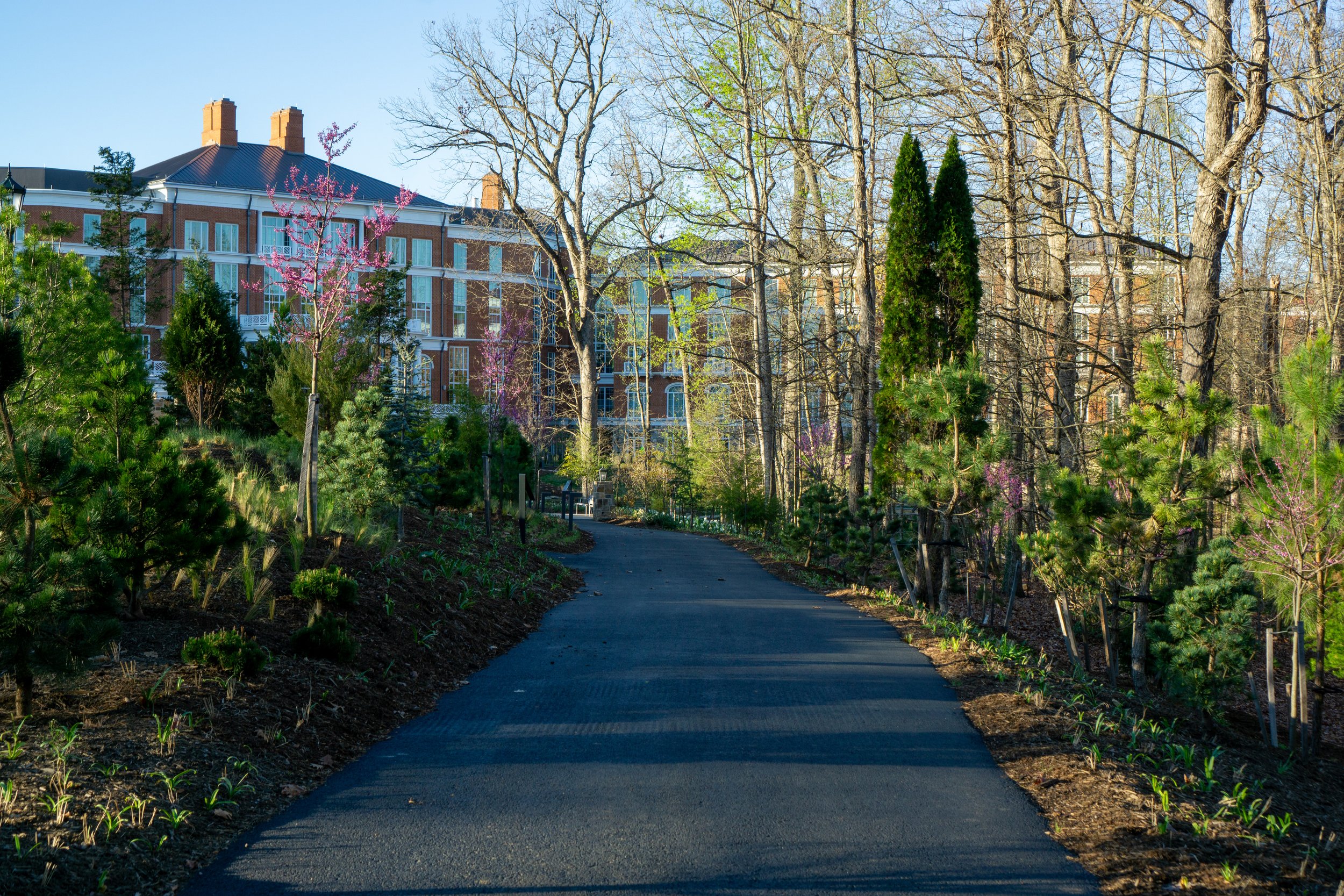
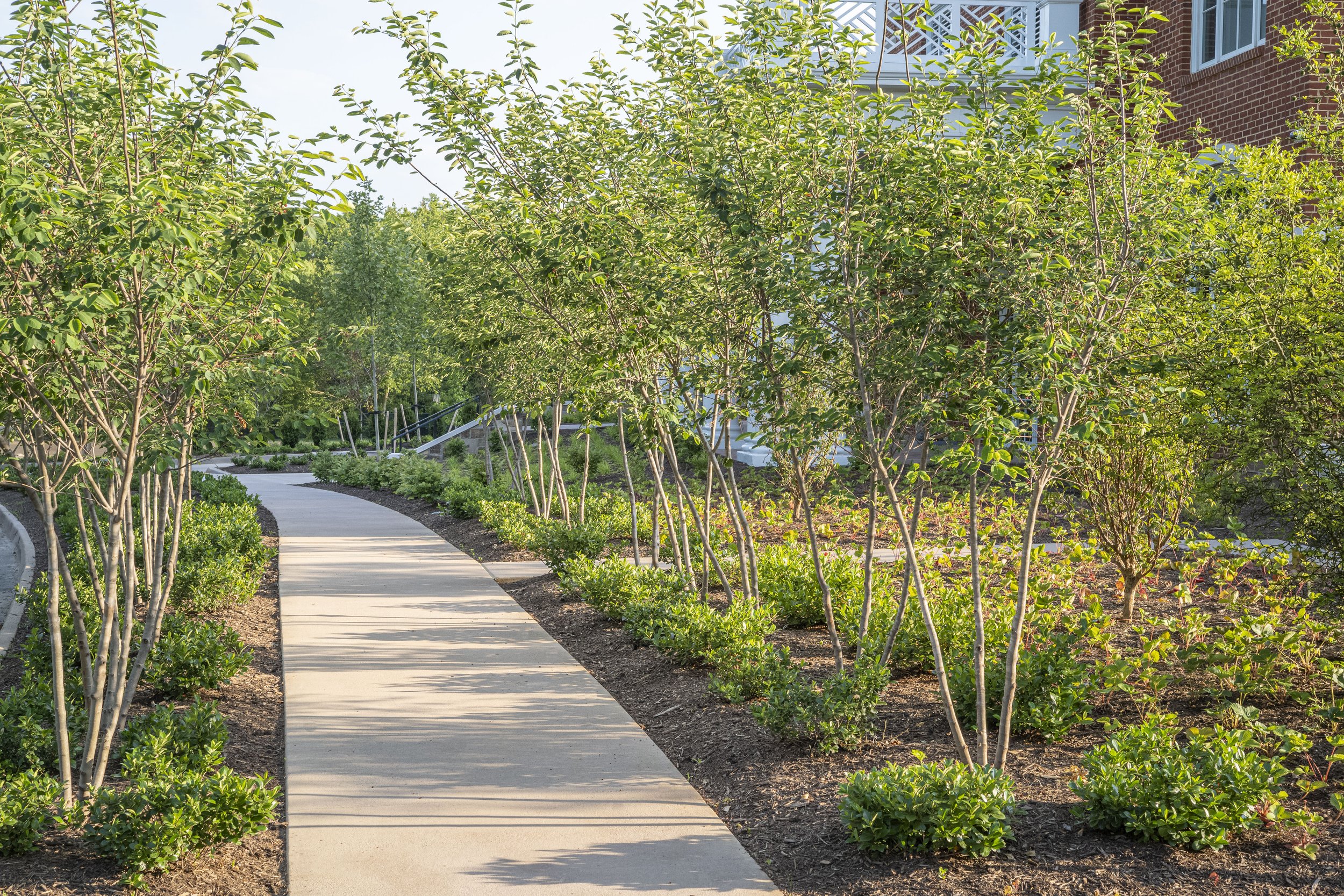

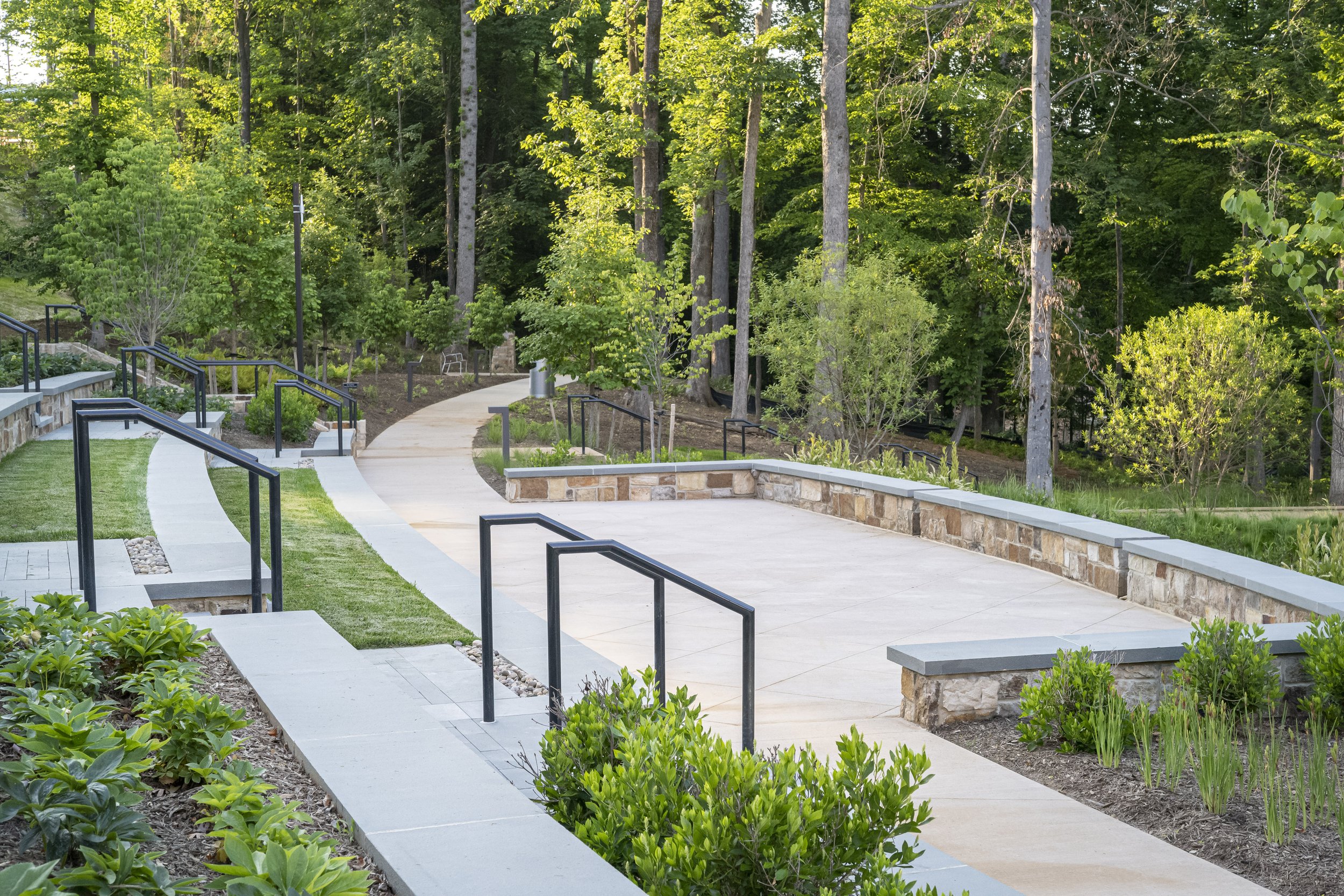
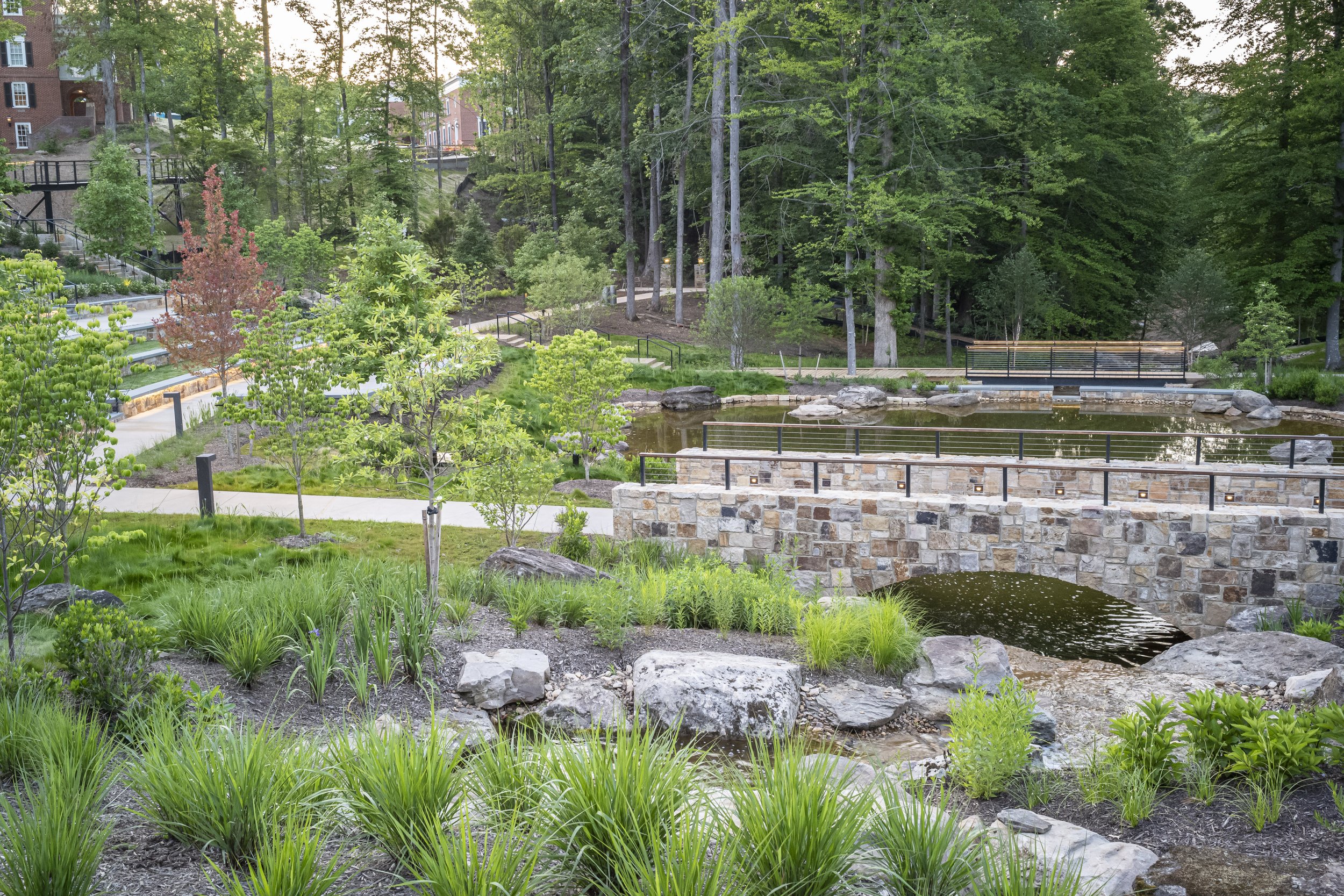
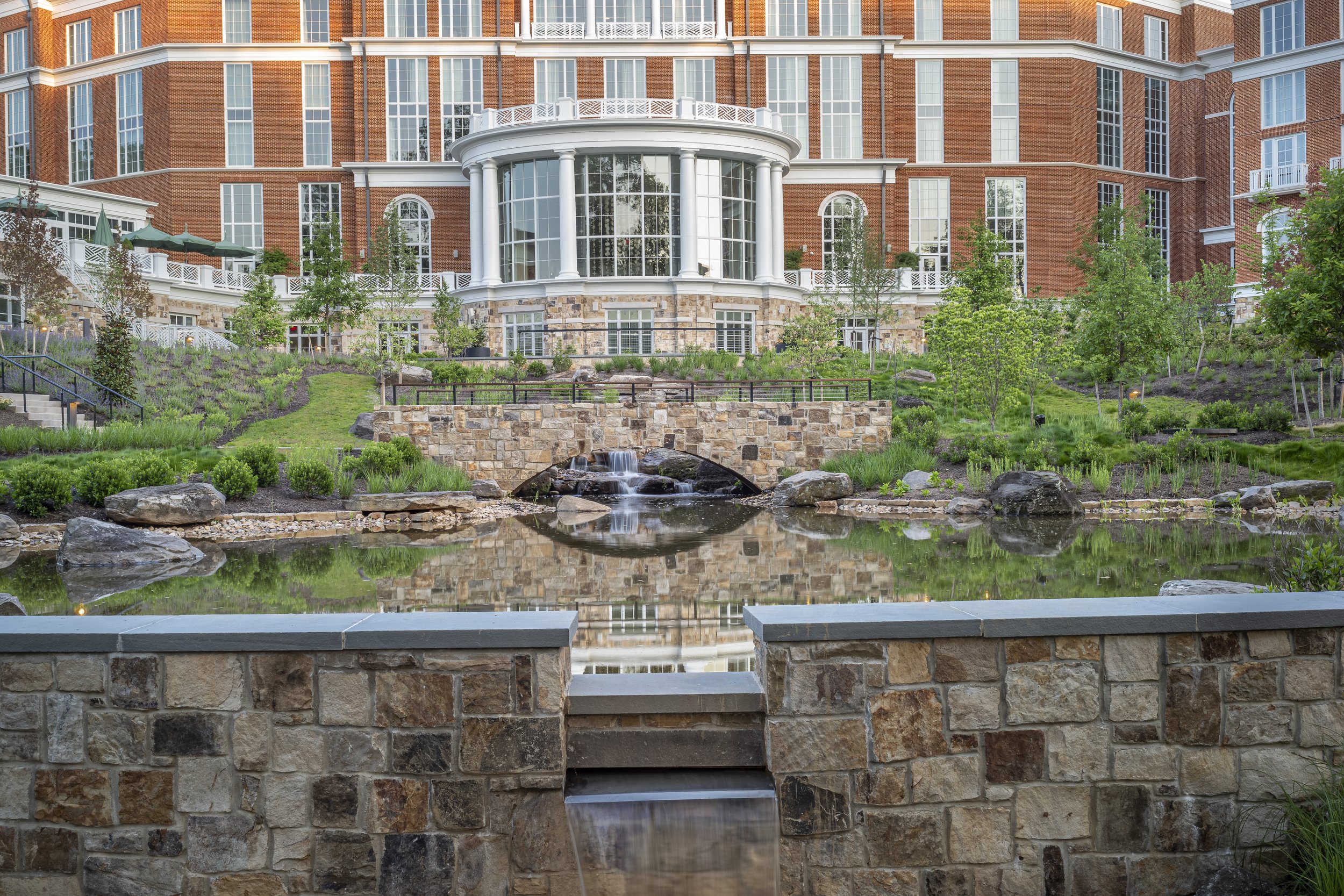

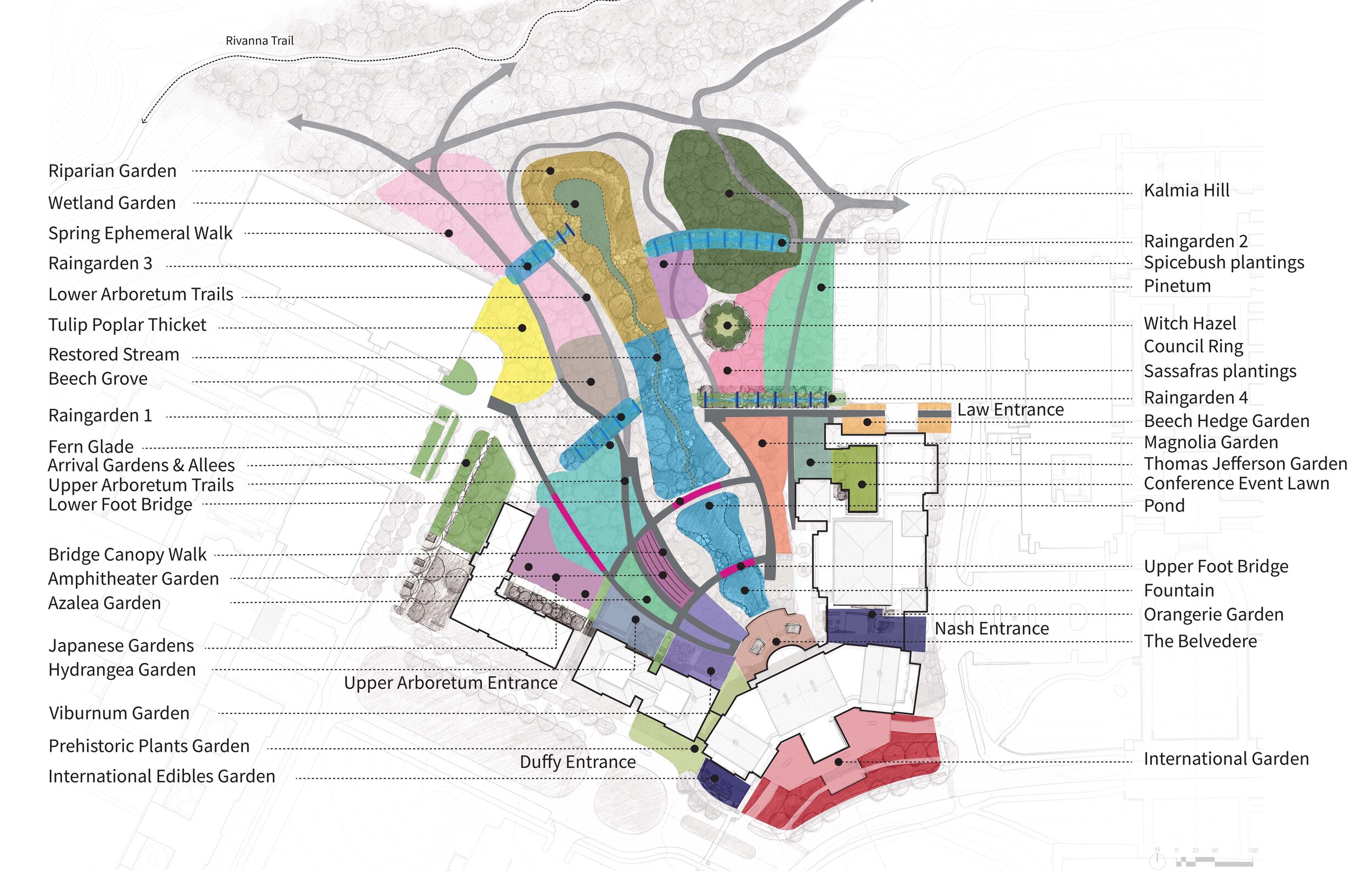
UVA Darden Inn - Arboretum & Botanical Gardens
The Tahija Arboretum and LaCross Botanical Gardens, located on 12 acres at the University of Virginia and adjacent to the Darden School of Business, is a magnificent addition to a new Forum Hotel and Conference Center that supports Darden’s Executive Education programs and those visiting for business or pleasure.
The Arboretum and Botanical Gardens leveraged an existing Piedmont wooded ravine in the center of the project site to establish a unique, landscape-focused heart to the project. Intending to enhance the outdoor experience and assimilate Darden’s pedagogy into its landscape, the Arboretum and Botanical Gardens create a series of outdoor spaces and walks that connect the hotel to other destinations within UVA North Grounds. Reinforcing the priority that landscape is essential to the University experience, the site integrates both natural and constructed systems to celebrate and reuse the stormwater that is collected on-site and to create a plant experience that is both expressive of Darden’s international reach and native Piedmont landscape.
There are twenty featured ornamental gardens developed to be culturally relevant (Thomas Jefferson Garden) and globally significant (Chinese, Japanese, International, and Conifer Gardens). Some gardens showcase plants that perform well in Virginia (Hydrangea, Magnolia, and Viburnum Gardens), and plants that existed before humans, known as “living fossils” can be found in the Prehistoric Plants Garden. Some gardens showcase plants that were already growing on-site (Tulip Poplar Thicket, Beech Grove, Fern Glade, Kalmia Knoll, Sassafras Hill, and Spring Ephemeral Walk) and gardens dedicated to ecological restoration (Wetland, Riparian, and Fountain Gardens). Emphasizing plants native to Virginia and safely consumed by humans and wildlife alike (Edible Garden and L’Orangerie Garden) produce fruits, berries, and flowers that become “botanicals” used in the hotel’s specialty cocktails.
A celebrated feature of the gardens is a meandering waterfall and fountain/pond basins that interpret the falls, streams, and pools found in the Piedmont region and the Blue Ridge Mountains. The Fountain Garden and ponds establish a natural habitat to increase diverse aquatic and riparian species. Supporting the sustainable stormwater system within the Arboretum & Botanical Gardens, the water source for water flowing through the fountain combines collected stormwater runoff and harvested rainwater stored in a cistern beneath the Viburnum Garden. This combination of reused water recirculates through the fountain and supplies some irrigation used throughout the gardens.
Accessible walkways lead to the beautiful gardens. With preservation in mind, a canopy bridge allows for the protection of existing trees. Other bridges over fountains, ponds, and stormwater outfalls provide easy access to these areas while enhancing the visitor experience and the didactic landscape. The gardens offer visitors multiple opportunities for gathering with large ceremonial and smaller encounter spaces, stone terraces, event lawns, and an amphitheater.
Skilled artisans and craftsmen collaborated extensively on the design of the waterfall/pond, the Chinese Moon Gate, and the Japanese Torii Gate. The Torii Gate represents a crossroads of tradition and innovation. Based on the traditional proportions and design elements, it is constructed of raw steel and is the only one like it in the world.
The gardens are home to more than 114,300 new plants, which include over 1,600 trees, 6,600 shrubs, 60,000 perennials/groundcovers, and 46,200 bulbs. The gardens complement the existing Piedmont Forest while being resilient with native and non-native plantings. The gardens function as a living laboratory for ecological stewardship in the way they handle stormwater and preserve trees. Students and visitors alike become the stewards of this living and breathing legacy as the plantings become a metaphor for planting the seeds of knowledge that they can take with them into the world.
CLIENT/PROJECT TEAM:
University of Virginia | Darden School of Business
Cooper Carry Architects - Architecture
Glave & Holmes - Architecture
H+G (now VHB) - Civil Engineering
WM Jordan - General Contractor
Faulconer - Site Contractor
TimberStone - Water Feature
James River Nurseries - Planting
PHOTOGRAPHY:
Bill Mauzy, Melody Robbins, Katherine McRose
LOCATION:
Charlottesville, VA
